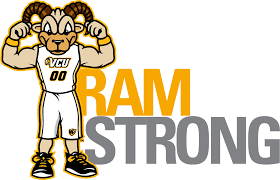February is Heart Health Month! Tips on how to keep your ticker ticking!
Statistics show cardiovascular diseases affect nearly half of American adults. Cardiovascular disease is the leading cause of death for men and women in the United States and 1 in 4 deaths is caused by heart disease each year. These conditions are also leading causes of disability, preventing Americans from working and enjoying time with their friends and family. It costs the United States $312.6 billion each year in health care services, medications and lost productivity. The rise in cardiovascular disease is driven, in part, by changes in the way high blood pressure is defined. (Sources: The American Heart Association, Centers for Disease Control and Prevention)
What can be done?
Manage these conditions:
- High blood pressure
- High cholesterol
- Diabetes
Practice these behaviors:
- Engage in physical activity
- Eat a healthy diet
- Lose excess weight
- Quit smoking
- Avoid excessive alcohol use
Recognize the symptoms of a heart attack:
- Pain or discomfort in the jaw, neck or back
- Feeling weak, light-headed or faint
- Chest pain or discomfort
- Pain or discomfort in arms or shoulder
- Shortness of breath
If you think that you or someone you know is having a heart attack, call 9–1–1 immediately.
Make sure you get your blood pressure checked regularly and treat it the way your doctor advised. Blood Pressure Fact Sheets can be found here.
Blood Pressure Categories
Here’s a look at the four blood pressure categories and what they mean for you. If your systolic and diastolic readings fall into two different categories, your correct blood pressure category is the higher category. For example, if your blood pressure reading is 125/85 millimeters of mercury (mm Hg), you have stage 1 hypertension.
| Top number (systolic) in mm Hg | And/or | Bottom number (diastolic) in mm Hg | Your category* | What to do† |
|---|---|---|---|---|
| *Ranges may be lower for children and teenagers. Talk to your child’s doctor if you’re concerned your child has high blood pressure.†These recommendations address high blood pressure as a single health condition. If you also have heart disease, diabetes, chronic kidney disease or certain other conditions, you may need to treat your blood pressure more aggressively. | ||||
| Below 120 | and | Below 80 | Normal blood pressure | Maintain or adopt a healthy lifestyle. |
| 120-129 | and | Below 80 | Elevated blood pressure | Maintain or adopt a healthy lifestyle. |
| 130-139 | or | 80-89 | Stage 1 high blood pressure (hypertension) | Maintain or adopt a healthy lifestyle. Talk to your doctor about taking one or more medications. |
| 140 or higher | or | 90 or higher | Stage 2 high blood pressure (hypertension) | Maintain or adopt a healthy lifestyle. Talk to your doctor about taking more than one medication. |
If you are an adult with a 10 percent or higher risk of developing cardiovascular disease in the next 10 years, or if you have chronic kidney disease, diabetes or coronary artery disease, your treatment goal is less than 130/80 mm Hg. If you’re a healthy adult age 65 or older, your treatment goal is also less than 130/80 mm Hg.
If your blood pressure is normal, maintaining or adopting a healthy lifestyle can prevent or delay the onset of high blood pressure or other health problems. If your blood pressure isn’t normal, a healthy lifestyle — oftentimes along with medication — can help bring it under control and reduce your risk of life-threatening complications.
At VCU we are committed to helping you in the pursuit of achieving a healthy and happy work and life balance. For more information please see our webpage (https://hr.vcu.edu/current-employees/worklife/)
